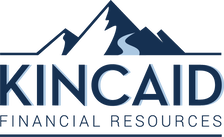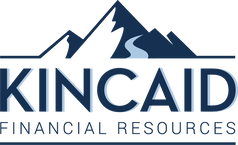|
The first half of 2020 has been a rollercoaster ride. The COVID-19 pandemic completely altered our way of life and threw the economy into a tailspin. Most states have started the reopening process, but there is still significant uncertainty about the long-term impact of coronavirus and how long the pandemic will continue. Federal Reserve Chairman Jerome Powell recently said the economy faces a “long road” to recovery, and predicted the process may take through 2022.1 While the recovery may be a long-term journey, there have been some signs of hope in recent months: Stock Market ReturnsThe stock market had been enjoying the longest bull market in history before the coronavirus pandemic hit.2 The bull market came to an abrupt end starting in late February. On February 20, the S&P hit a high of 3373. From that point through March 23, the S&P fell to 2237, a decline of 33.7%.3 However, since that time, the market has increased to 3115 through June 18. That’s an increase of 39.25%. The S&P is nearly back to its pre-COVID levels.3 Of course, it’s impossible to predict the future direction of the markets. Just because the market has been on an upswing doesn’t mean it will continue. A spike in cases or a second round of shutdowns could send the markets back into a decline. UnemploymentThe pandemic has driven unemployment to record-high levels. Through mid-June, the country had 13 consecutive weeks with more than 1 million new jobless claims. Prior to the coronavirus pandemic, the record for a single week was 695,000 in May 1982.4 The good news is that jobless claims have been declining. At the beginning of the pandemic, weekly jobless claims exceeded 6 million. In fact, up until late-May, they exceeded 2 million. So while jobless claims remain at record highs, they are on the decline. The amount of continuing claims has also dropped from 25 million in early May to just over 20 million in early June.4 Consumer SpendingConsumer spending was impacted significantly by the COVID-19 pandemic. That’s not surprising, given most states were effectively shut down for two months. In April, consumer spending dropped by 16.4%, a record monthly decline.5
In May, consumer spending set another record—this time for biggest monthly increase. The figure rose by 17.7%, driven by large increases in clothing (188%), furniture (+90%), sporting goods (+88%), and electronics (+55).5 Consumer spending by itself doesn’t mean the economy is on the path to recovery. There are still plenty of uncertainties in the economy. However, it is a good sign that consumer spending is nearly back to its pre-pandemic levels. This is uncharted territory for all of us. The situation and data changes so fast that it’s impossible to project where the economy may be headed. A comprehensive strategy that aligns with your goals and risk-tolerance can keep you on track to meet your long-term objectives. Let’s connect today and talk about your concerns, questions and challenges. At Kincaid Financial Resources, we can help you develop and implement a strategy. Contact us today and let’s start the conversation. You can reach us here. 1https://www.marketwatch.com/story/fed-sees-rates-near-zero-through-2022-says-asset-purchases-will-continue-2020-06-10 2https://www.cnn.com/2020/03/11/investing/bear-market-stocks-recession/index.html 3https://www.google.com/search?q=INDEXSP:.INX&tbm=fin&stick=H4sIAAAAAAAAAONgecRowi3w8sc9YSntSWtOXmNU5eIKzsgvd80rySypFBLnYoOyeKW4uTj1c_UNDM0qi4t5FrHyePq5uEYEB1jpefpFAAAU6wGESAAAAA#scso=_hL3sXpOQHsnWtAal04OQCA1:0 4https://www.cnbc.com/2020/06/18/weekly-jobless-claims.html 5https://finance.yahoo.com/news/consumer-spending-comes-back-with-a-vengeance-in-may-morning-brief-100600715.html This information is designed to provide a general overview with regard to the subject matter covered and is not state specific. The authors, publisher and host are not providing legal, accounting or specific advice for your situation. By providing your information, you give consent to be contacted about investments and potential insurance products as deemed appropriate by a licensed fiduciary. This information has been provided by a Licensed Investment and Insurance Professional and does not necessarily represent the views of the presenting professional. The statements and opinions expressed are those of the author and are subject to change at any time. All information is believed to be from reliable sources; however, presenting professional makes no representation as to its completeness or accuracy. This material has been prepared for informational and educational purposes only. It is not intended to provide, and should not be relied upon for, accounting, legal, tax or investment advice. This information has been provided by a Registered Investment Advisor and Licensed Insurance Professional and is not sponsored or endorsed by the Social Security Administration or any government agency. Advisory services offered through ChangePath, LLC, a Registered Investment Adviser with the SEC. ChangePath, LLC and Kincaid Financial Resources are unaffiliated entities. 20195 - 2020/6/22
0 Comments
It’s hard to find good news in today’s economic environment. COVID-19 single-handedly brought an end to the longest bull market in history and ushered in record-setting unemployment. If you’re like millions of others in the country, you’ve lost income or possibly even your job. You also may have lost savings due to market volatility. Given that the coronavirus pandemic is still ongoing, there’s no telling how the economy or the financial markets may respond through the rest of the year. Even in down years, there are still opportunities to improve your financial future. Below are three such moves to consider in your strategy Fund a Roth IRA.In 2020, you can contribute up to $6,000 to a Roth IRA, or up to $7,000 if you are 50 or older.1 A Roth can be helpful because you can take tax-free withdrawals from it after age 59 ½, assuming you’ve held the account for at least five years. Not everyone can use a Roth. If you’re a married couple making more than $206,000 or a single person making more than $139,000, you can’t contribute to a Roth IRA.2 However, if a pay cut has pushed you below the income limits, you could use this time to open a Roth. Convert your IRA to a Roth.Another option is a Roth conversion. This is a process that converts a traditional IRA into a Roth. You pay taxes on your IRA balance and then the net amount is deposited into a new Roth IRA. You face a current tax liability, but you get potentially tax-free income in retirement. It may make sense to do a Roth conversion during a down year, when your income is reduced. You may be in a lower tax bracket and will thus face a lower tax bill on the conversion. A financial professional can help you explore this option. Dollar-cost average.Dollar-cost averaging is a strategy that can be helpful at all times, but especially during volatile periods. You contribute the same amount of money at regular intervals, like once per month. That money is then invested in a predetermined strategy.
The benefit of this is that you buy more shares when prices are low and fewer shares when prices are high. This reduces your overall cost, which increases your potential for growth. Again, a financial professional can help you implement a dollar-cost averaging strategy. We can help you determine the right strategy in this volatile time. Contact us today at Kincaid Financial Resources so we can help you develop a plan. Let’s connect soon and start the conversation. You can reach us here. 1https://www.irs.gov/retirement-plans/plan-participant-employee/retirement-topics-ira-contribution-limits#:~:text=For%202020%2C%20your%20total%20contributions,less%20than%20this%20dollar%20limit. 2https://www.irs.gov/retirement-plans/plan-participant-employee/amount-of-roth-ira-contributions-that-you-can-make-for-2020 This information is designed to provide a general overview with regard to the subject matter covered and is not state specific. The authors, publisher and host are not providing legal, accounting or specific advice for your situation. By providing your information, you give consent to be contacted about investments and potential insurance products as deemed appropriate by a licensed fiduciary. This information has been provided by a Licensed Investment and Insurance Professional and does not necessarily represent the views of the presenting professional. The statements and opinions expressed are those of the author and are subject to change at any time. All information is believed to be from reliable sources; however, presenting professional makes no representation as to its completeness or accuracy. This material has been prepared for informational and educational purposes only. It is not intended to provide, and should not be relied upon for, accounting, legal, tax or investment advice. This information has been provided by a Registered Investment Advisor and Licensed Insurance Professional and is not sponsored or endorsed by the Social Security Administration or any government agency. Advisory services offered through ChangePath, LLC, a Registered Investment Adviser with the SEC. ChangePath, LLC and Kincaid Financial Resources are unaffiliated entities. 20199 - 2020/6/22 |
Categories
All
Archives
February 2021
|
Advisory Services offered through CreativeOne Wealth, LLC a Registered Investment Adviser. CreativeOne Wealth, LLC and Kincaid Financial Resources are unaffiliated entities.
Licensed Insurance Professional. We are an independent financial services firm helping individuals create retirement strategies using a variety of investment and insurance products to custom suit their needs and objectives. Investing involves risk, including the loss of principal. No Investment strategy can guarantee a profit or protect against loss in a period of declining values. Any references to protection or lifetime income refer to fixed insurance products, never securities or investment products. Insurance and annuity products are backed by the financial strength and claims-paying ability of the issuing insurance company.
The information is not intended to be investment, legal or tax advice. The agent can provide information, but not advice related to social security benefits. The agent may be able to identify potential retirement income gaps and may introduce insurance products, such as an annuity, as a potential solution. For more information, contact the Social Security Administration office, or visit www.ssa.gov.
Licensed Insurance Professional. We are an independent financial services firm helping individuals create retirement strategies using a variety of investment and insurance products to custom suit their needs and objectives. Investing involves risk, including the loss of principal. No Investment strategy can guarantee a profit or protect against loss in a period of declining values. Any references to protection or lifetime income refer to fixed insurance products, never securities or investment products. Insurance and annuity products are backed by the financial strength and claims-paying ability of the issuing insurance company.
The information is not intended to be investment, legal or tax advice. The agent can provide information, but not advice related to social security benefits. The agent may be able to identify potential retirement income gaps and may introduce insurance products, such as an annuity, as a potential solution. For more information, contact the Social Security Administration office, or visit www.ssa.gov.



 RSS Feed
RSS Feed
